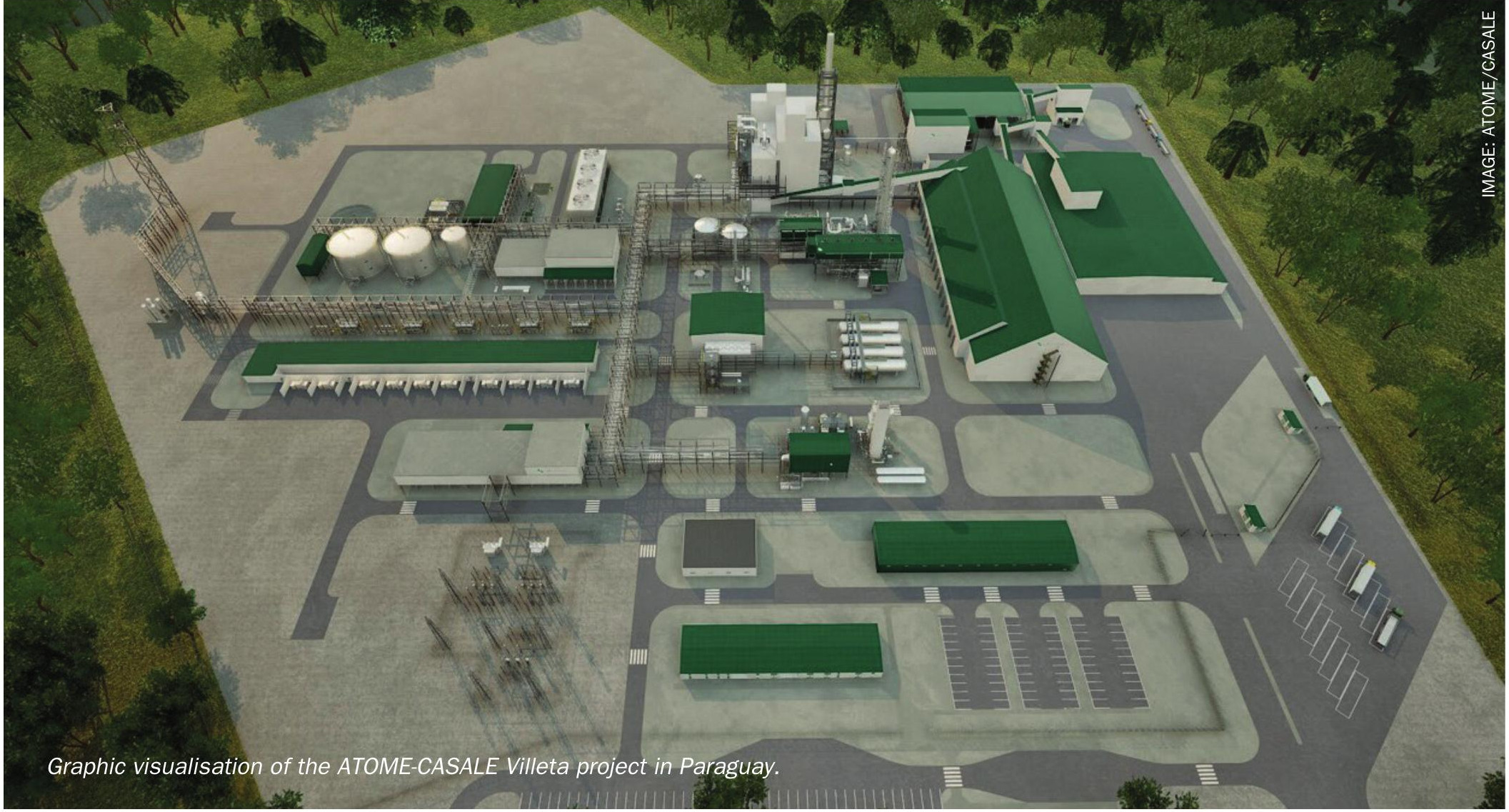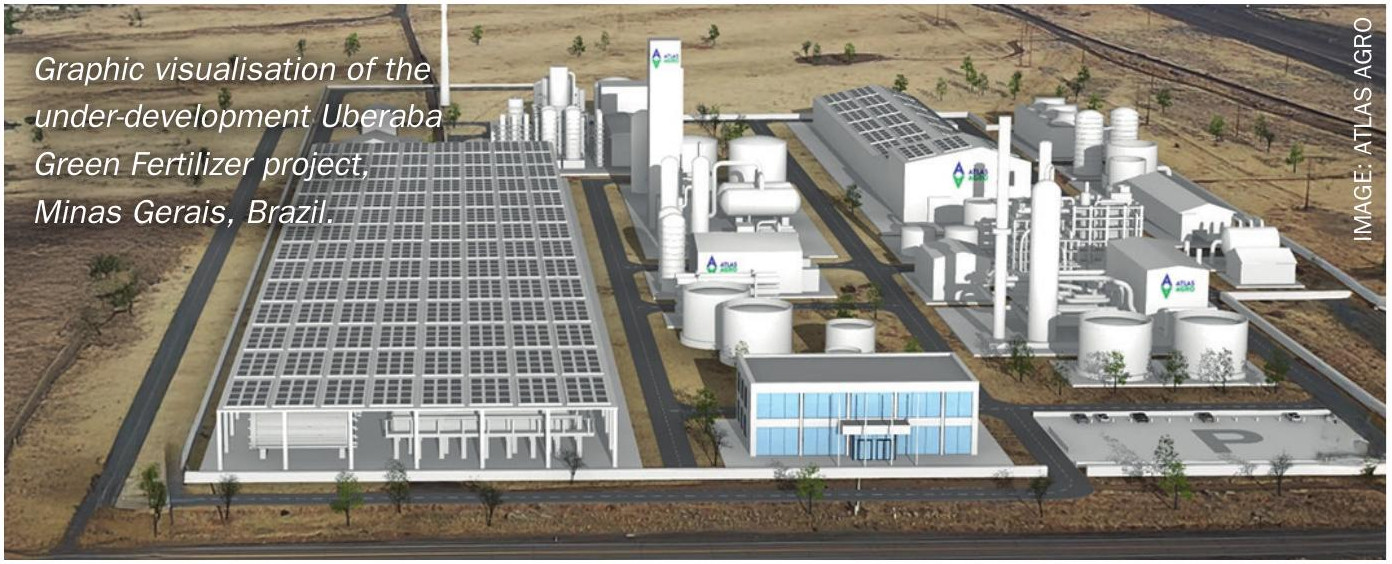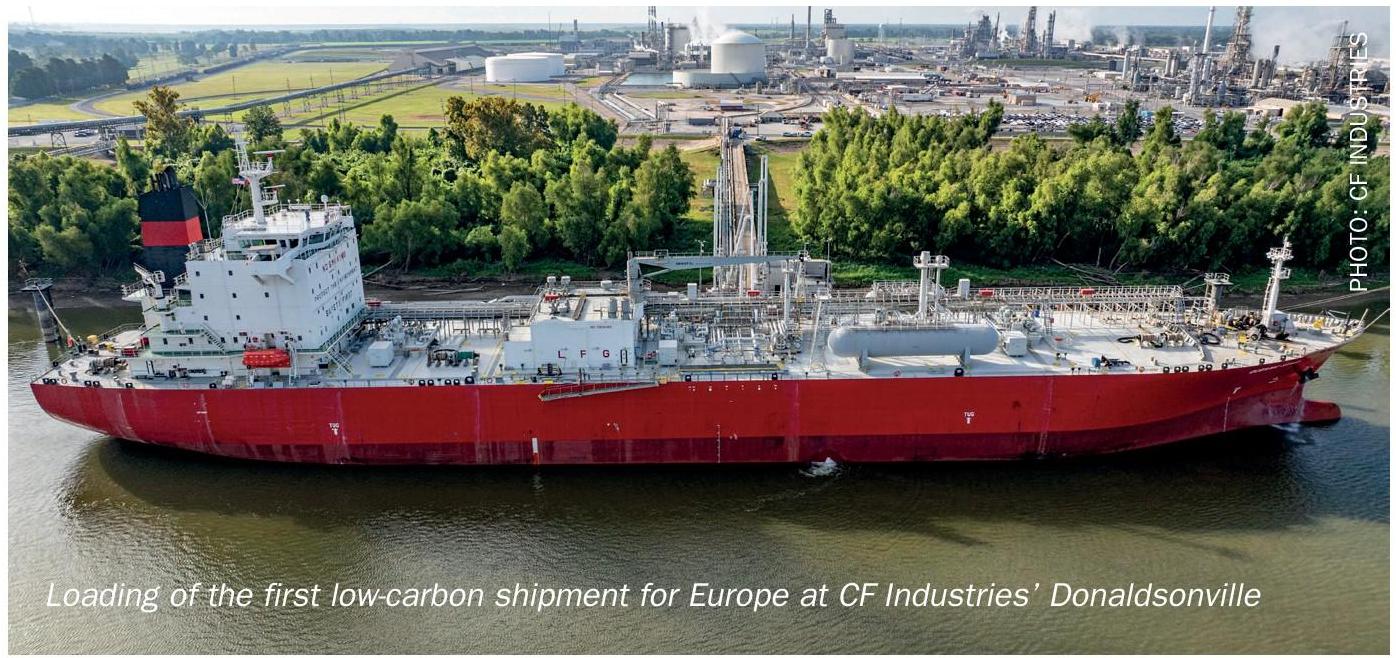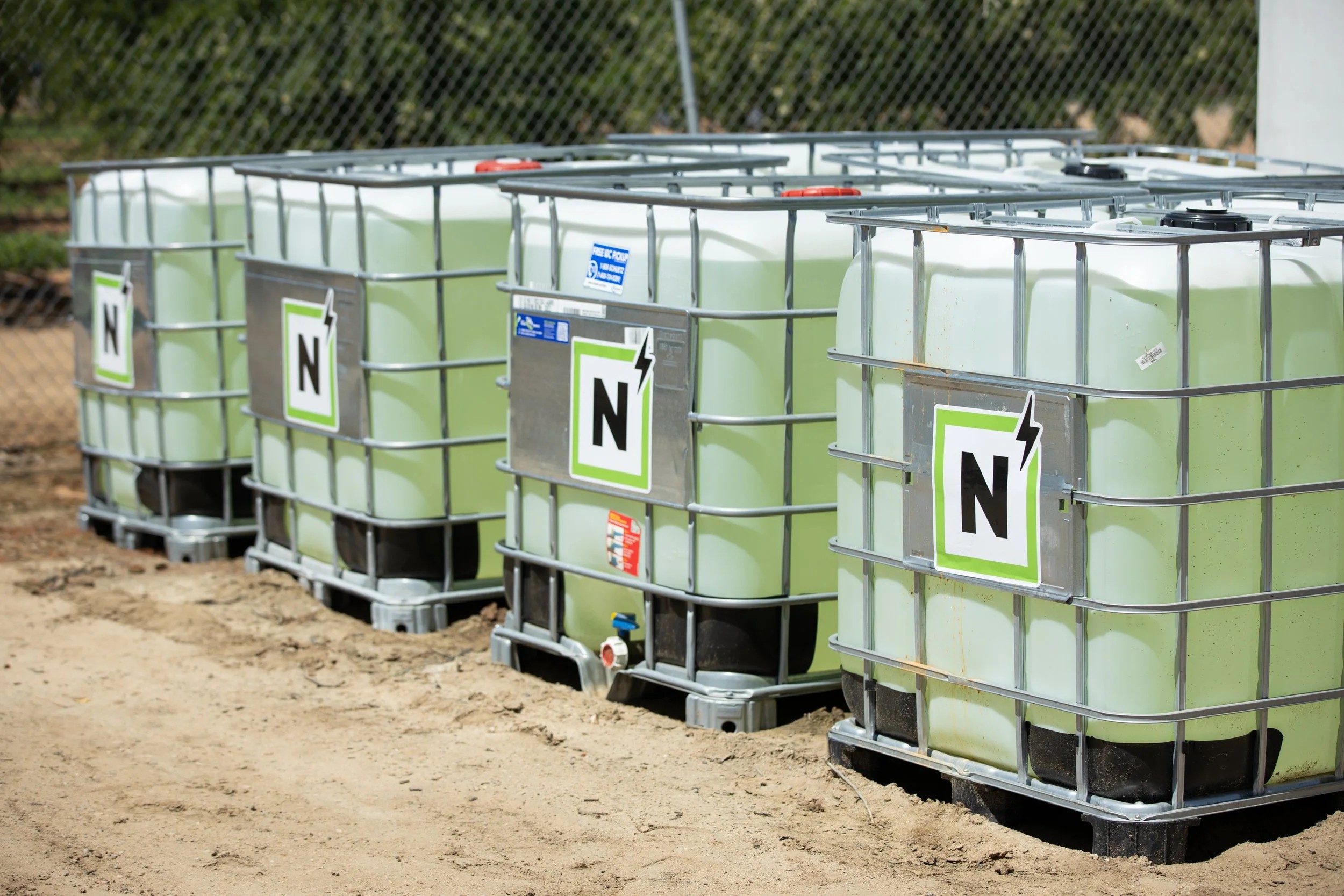Nitrogen+Syngas 395 May-Jun 2025

3 May 2025
NextChem to supply technology for low carbon methanol plant
NextChem subsidiary KT Tech has been awarded a licensing contract for the implementation of NextChem’s proprietary NX AdWinMethanol® Zero technology for Pacifico Mexinol, an ultra-low carbon methanol facility near Los Mochis, Sinaloa, on the Pacific coast of Mexico, which will have a planned output in excess of 2.1 million t/a. Transition Industries LLC, based in Houston, Texas, is developing Pacifico Mexinol with the International Finance Corporation (IFC), a member of the World Bank Group. When it initiates operation in 2028, Pacifico Mexinol is expected to be the largest single ultra-low carbon methanol facility in the world – producing approximately 350,000 t/a of green methanol and 1.8 million t/a of blue methanol annually from natural gas with carbon capture.The value of the licensing award is in the low tens of million euros, with the whole package estimated to be about e250 million, including basic engineering, proprietary and critical equipment supply, as well as assistance to commissioning, start-up and operation of the facility.
NX AdWinMethanol® Zero technology has been developed by GasConTec, NextChem’s subsidiary dedicated to low-carbon hydrogen and methanol solutions, and integrates a proprietary autothermal reforming (ATR) process and methanol synthesis loop and proprietary CO2 capture technologies. It further minimises carbon emissions to nearly zero by converting captured CO2 and green hydrogen into ultra-low-carbon methanol. This approach increases the sustainability of the methanol production process, reflecting Pacifico Mexinol’s commitment to addressing climate change. Rommel Gallo, Chief Executive Officer of Transition Industries, commented: “We are pleased to enter into this strategic relationship with NextChem and implement a world-class technology for the largest ultra-low carbon methanol facility in the world. We look forward to working together with NextChem to accelerate and lead the decarbonisation of the global methanol and chemicals sectors.”






